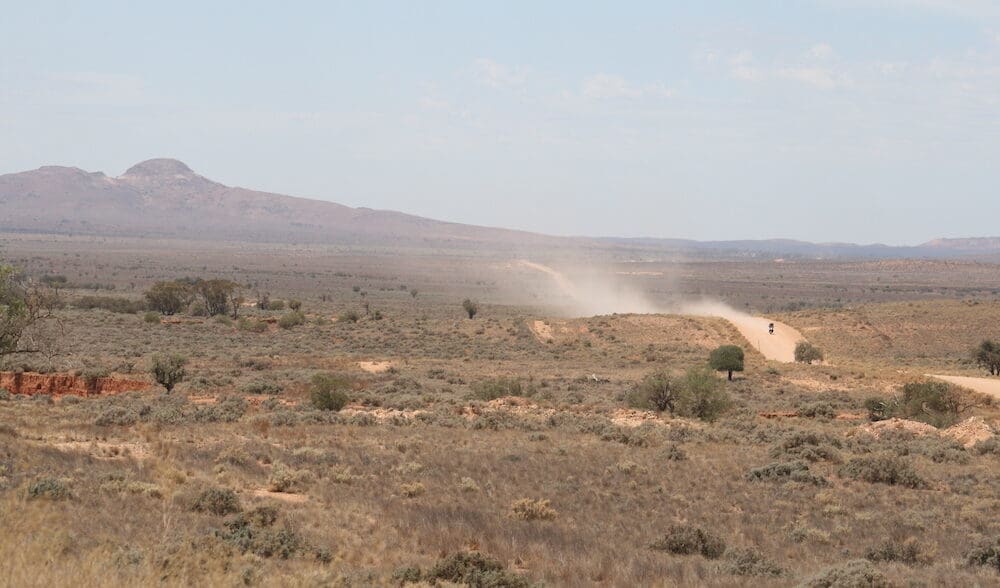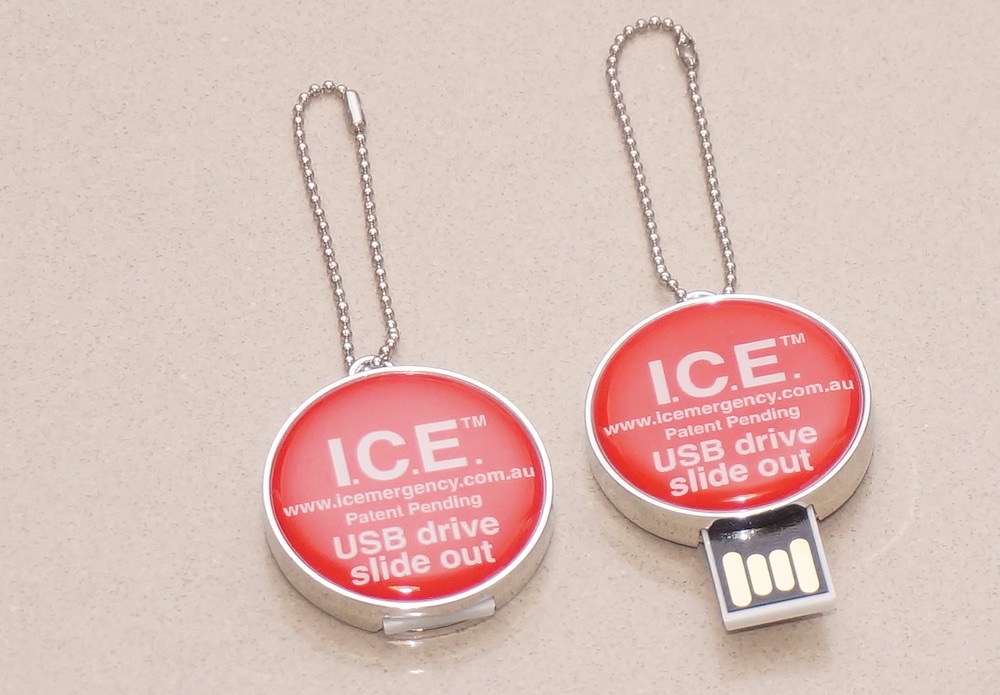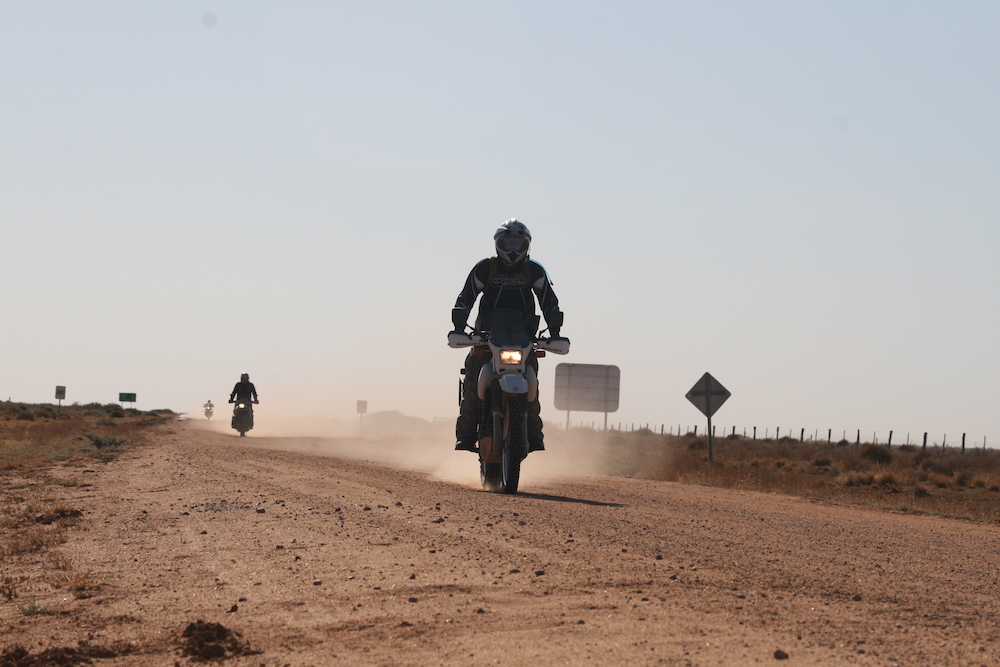The uniquely Australian Royal Flying Doctor Service attends a “significant” number of rescues of riders involved in motorcycle crashes in remote parts of our Outback.
So the RFDS has urged motorcyclists riding in the Outback to plan their journey properly and exercise caution.
In the past year, the South Eastern Section of the Royal Flying Doctor Service (RFDS SE) helped more than 49,100 patients. They transported almost 8200 people including a “significant number” of motorcycle crash victims, says spokesman Ryan Young.
The RFDS’ recent report Responding to injuries in remote and rural Australia showed that up to a quarter of their emergency medical evacuations are city travellers on Outback adventures.
In one incident in October 2016, rider Andrew Bourne, of Toowoomba, hit an emu with his KTM on the second day of a trip with a group of friends.
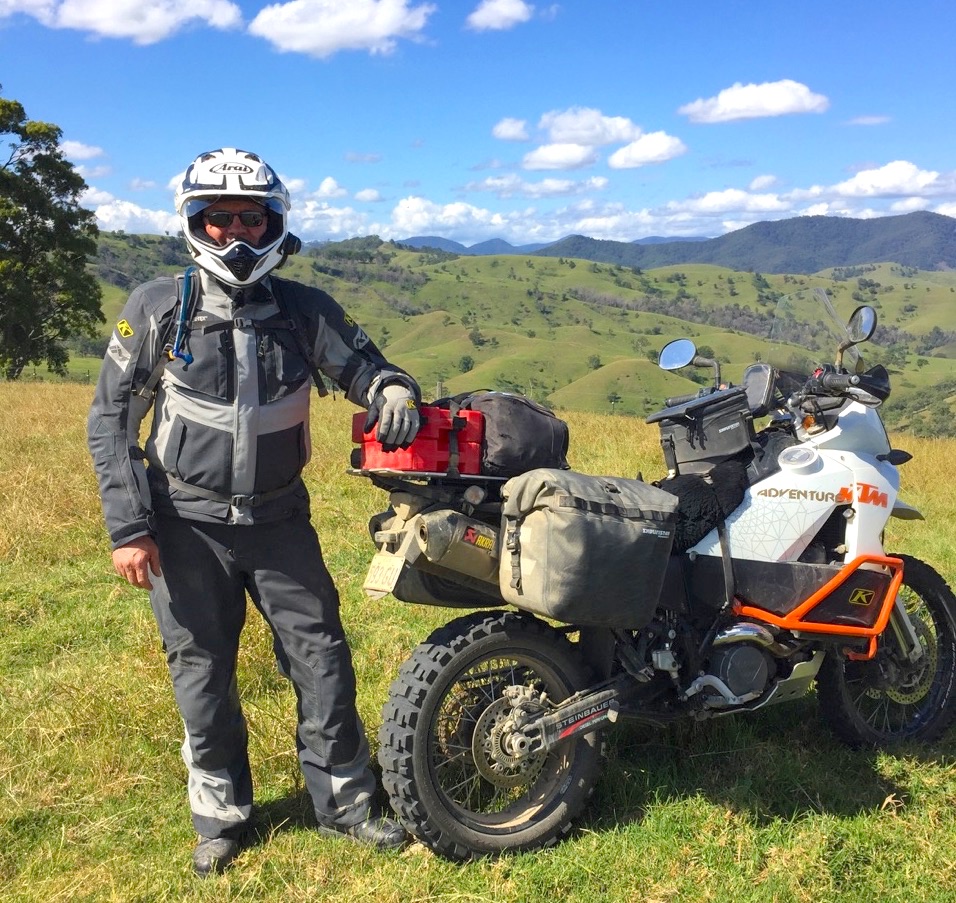
He was thrown 40m on to the dirt. When the accident occurred, the group was 50km out of Brewarrina, in north-western NSW. His mates quickly pulled over to phone for an ambulance and give first-aid.
Andrew had been knocked unconscious and had a range of serious injuries, including suspected spinal injuries.
His story shows how vital the Royal Flying Doctor Service is for people in remote areas who are hundreds of kilometres from the nearest specialist hospital.
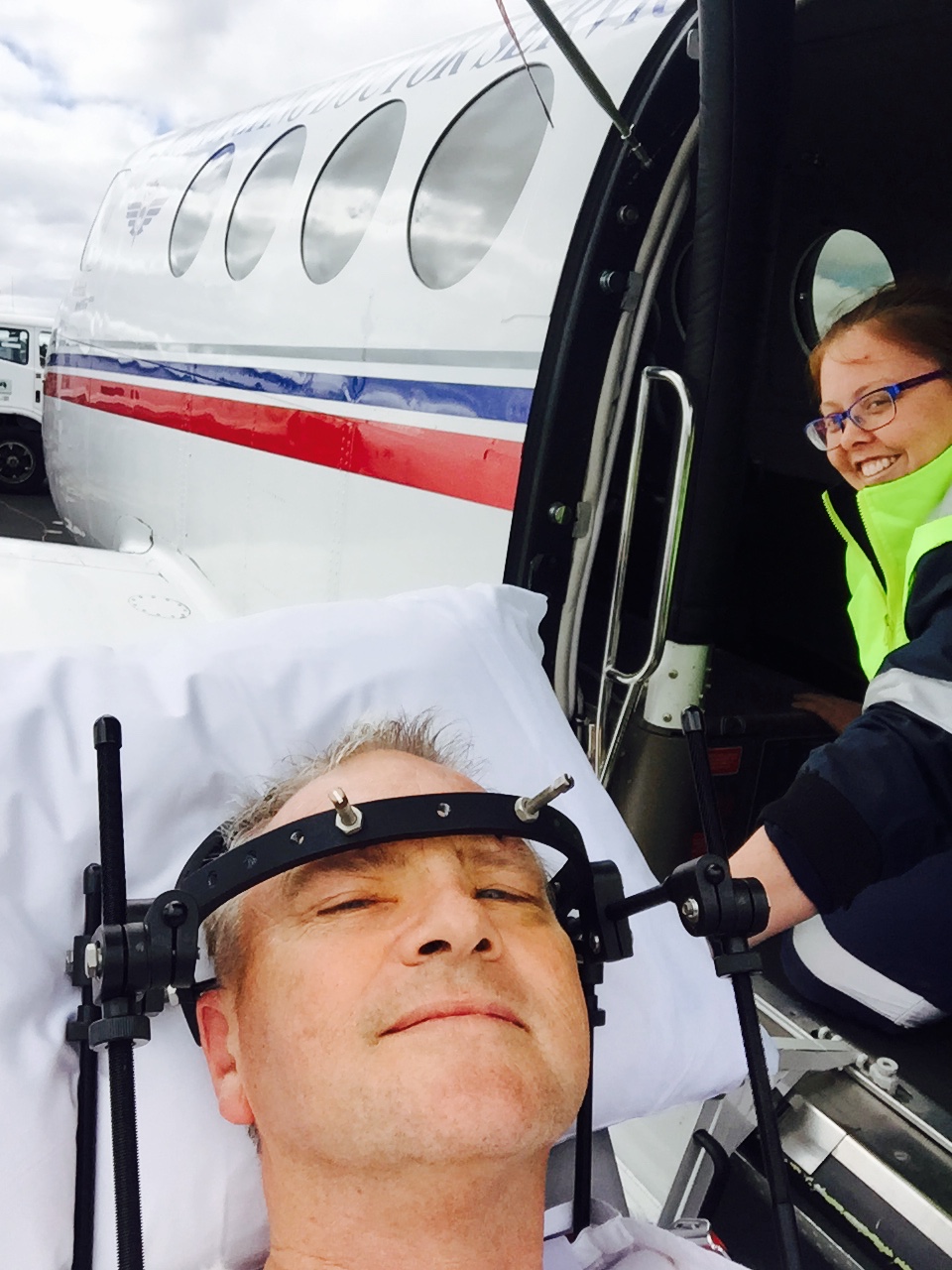
“I was knocked out for about five minutes,” Andrew says. “Fortunately the Brewarrina ambulance arrived pretty quickly and I was taken to Brewarrina Hospital for initial examinations. But because I had suspected spinal injuries they couldn’t scan, they called the RFDS.”
Andrew was airlifted to Dubbo Hospital where he spent the next week being stabilised and treated. “I had a broken neck at the C2 vertebrae, five broken ribs, a torn spleen and a lot of bruising,” says Andrew. “I was fitted with a halo brace around my head to keep the vertebrae and spine from moving while it healed.”
The RFDS warns that kangaroos and emus are always a danger on Outback roads. Find out what other animals are dangers to riders. Click here to find out how to avoid becoming roadkill.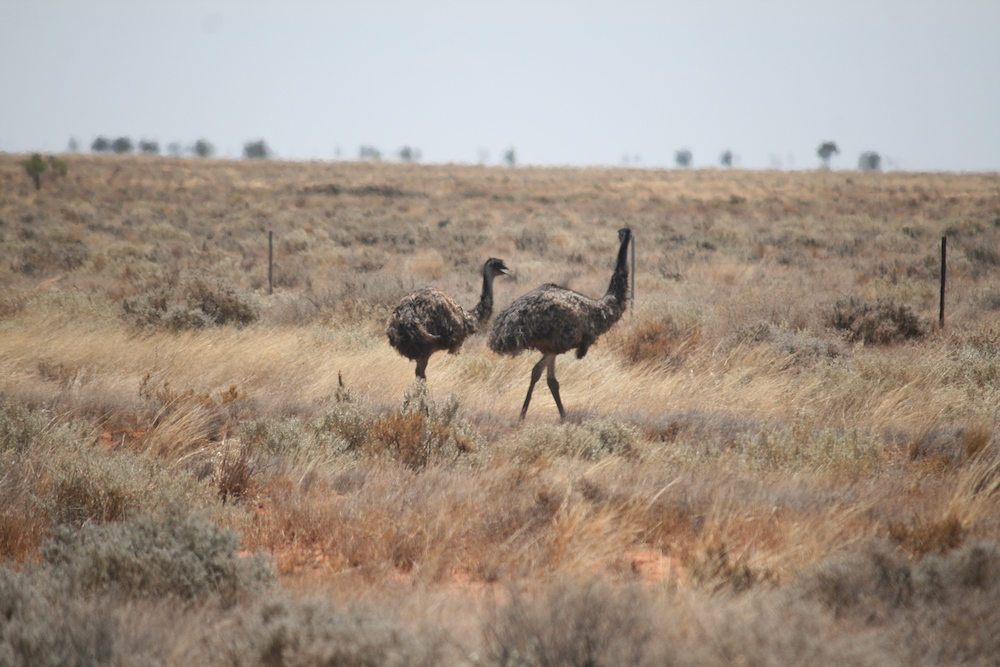
“I was one of the lucky ones,” says Andrew. “I lived to tell the tale. I can still walk around, I have all my faculties and I have no spinal cord damage.”
Andrew and his wife have decided to add the RFDS to the organisations they support.
“I’m extremely lucky to be where I am now,” says Andrew, who is recovering well. “I can’t speak highly enough of the service. The RFDS was brilliant.”
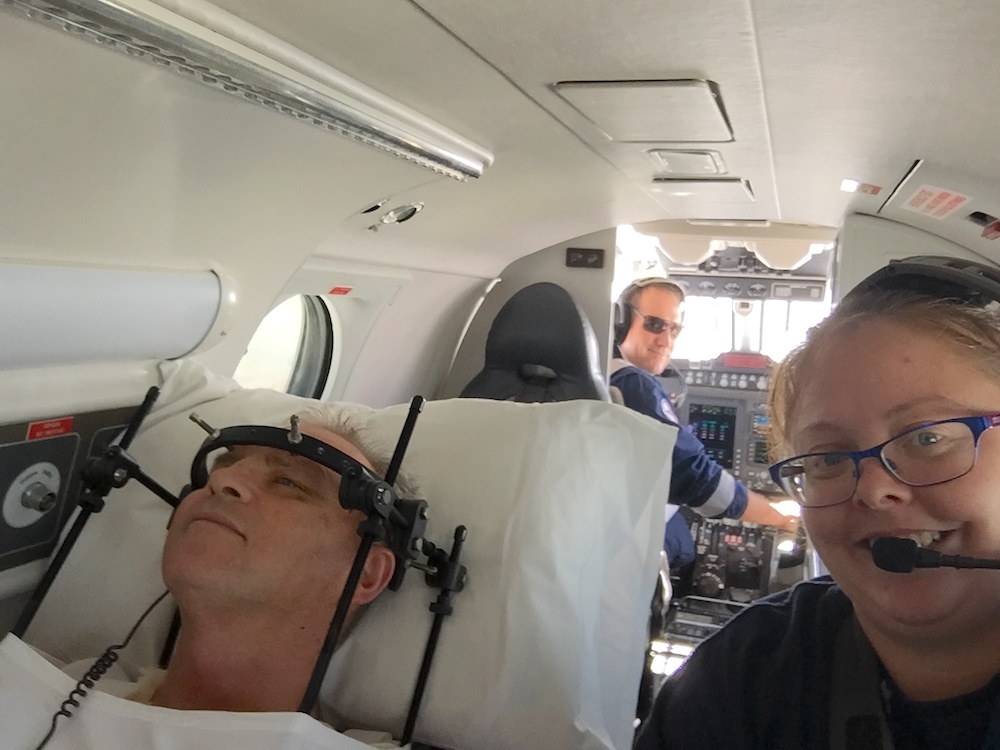
RFDS Senior Flight Nurse Karen Barlow says preparation and planning is essential before setting off in Outback conditions.
The RFDS website features a Travelling Outback section which has a handy checklist.
Royal Flying Doctor Service top Outback tips
- Get good quality maps (paper and GPS) and plan your route.
- Don’t travel in the hottest part of the year.
- Be careful not to pack too much. It makes the bike heavy and difficult to control in soft sand, mud and gravel.
- Store water in small containers instead of one large tank to spread the load. Check all water containers for leaks. In very hot conditions aim to carry 10 litres of water per person per day and don’t rely on waterholes, dams, bores, mills, tanks or troughs for water. A back-up vehicle is ideal for extreme Outback adventures.
- Take a summary of your medical history with you and bring all medication and repeat scripts.
We recommend a I.C.E.mergency USB to store medical information. BUY NOW for less than $20. - Pack a hat, sunscreen and insect repellent.
- In an emergency, dial 000 and be prepared to give your location. If you own a smartphone download the Emergency + app which gives your longitude and latitude. It will help emergency services such as the RFDS to find you. If you don’t have a smartphone, keep an eye on the crossroads as you travel and mark your journey on a map. Be aware that some very remote areas have no mobile coverage so pack an EPIRB or satellite phone.
The RFDS SE also recommends that people travelling to remote areas do a first-aid course and carry a kit with them.
Motorbike Writer recommends doing a motorcycle-specific course such as First Aid for Motorcyclists.
The RFDS also has a Fast First Aid booklet with advice for people with no medical training on how to manage first-aid situations. It includes managing a heart attack, snake bites, choking, burns and severe bleeding.
It is free in NSW and ACT only. To receive your copy text ‘NOW’ to 0428 044 444. Delivery may be slightly delayed over the holiday period.


